 Janus Head Janus Head
11.1&2

Travels Inside the Archive
Robert Gibbons
Edge of Maine Editions

Beyond Time
New & Selected Work
1977 - 2007
Robert Gibbons
 The Age of Briggs & Stratton The Age of Briggs & Stratton
Peter Culley
|
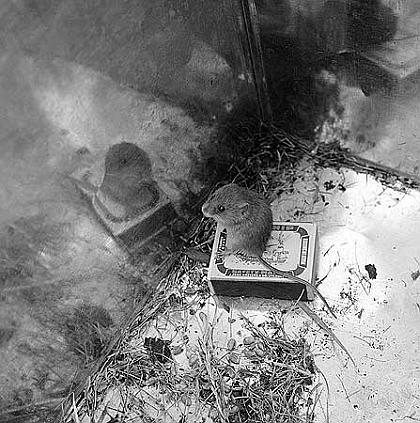
harvest mouse on a matchbox
in a biscuit tin
at the Royal Show, Bristol
John Gay
1909 - 1999 ViewFinder
National Monuments Record
_______________________
John Gay
b. June 30, 1685
The Fan : A Poem. Book I
John Gay
b. June 30, 1685
I sing that graceful toy, whose waving play,
With gentle gales relieves the sultry day.
Not the wide fan by Persian dames display'd,
Which o'er their beauty casts a grateful shade;
Nor that long known in China's artful land,
Which, while it cools the face, fatigues the hand;
Nor shall the muse in Asian climates rove,
To seek in Indostan some spicy grove,
Where stretch'd at ease the panting lady lies,
To shun the fervour of meridian skies,
While sweating slaves catch every breeze of air,
And with wide-spreading fans refresh the fair;
No busy gnats her pleasing dreams molest,
Inflame her cheek, or ravage o'er her breast,
But artificial zephyrs round her fly,
And mitigate the fever of the sky.
Nor shall Bermudas long the muse detain,
Whose fragrant forests bloom in Waller's strain,
Where breathing sweets from every field ascend,
And the wild woods with golden apples bend;
Yet let me in some odorous shade repose,
Whilst in my verse the fair Palmetto grows:
Like the tall pine it shoots its stately head,
From the broad top depending branches spread;
No knotty limbs the taper body bears,
Hung on each bough a single leaf appears,
Which shrivell'd in its infancy remains,
Like a clos'd fan, nor stretches wide its veins,
But as the seasons in their circle run,
Opes its ribb'd surface to the nearer sun;
Beneath this shade the weary peasant lies,
Plucks the broad leaf, and bids the breezes rise.
Stay, wandering muse, nor rove in foreign climes,
To thy own native shore confine thy rhymes.
Assist, ye Nine, your loftiest notes employ,
Say what celestial skill contriv'd the toy;
Say how this instrument of love began,
And in immortal strains display the fan.
...(more)
_______________________

mail room
1947
John Gay
_______________________
On Narrative: The Beggar and the King (Part One)
David Antin
courtesy ofJerome Rothenberg (Poems and Poetics)
... I started out in the 1950s like many young experimental artists with a strong commitment to most of the received ideas of early 20th century modernism, the most important of which for a functioning artist was the idea of the exhaustion, experiential and esthetic, of representation in all its forms. For a language artist this mostly meant the uselessness of narrative.
I held this view for a long time, inconsistently I suppose, because I made use of some kinds of narrative anyway, but I continued to hold this view till some time in the early 1970s, when it became apparent to me and a number of other writers and artists that abstraction and collage, the modernist alternatives to representation had also become exhausted, perhaps through their success in advertising in magazines and on television. But for whatever reason, by the beginning of the 1970s both abstraction and collage appeared even more hopeless as signifiers of human experience and seemed reduced to conventionalized signifiers of style.
With something like this in mind -- the exhaustion of nearly all the modes of experiential communication -- I began to wonder if it wasn't time to re-examine narrative to see if what we had all supposed of it was really true or as I was beginning to suspect the consequence of a very narrow and conventional idea of narrative; and when I started looking around I discovered that a lot of other people had been studying it too, and some for a very long time, though very few in a way that I found useful....(more)
_______________________

rural Berkshire
John Gay
_______________________
Capitalism, recession and resistance
Lenin's Tomb
Capitalism was bailed out at a global cost of some $20tn. But this didn't resolve the crisis - it shifted it from the private sector to the public sector, saving the investment banks from outright collapse at the expense of the public treasury, leading the sovereign debt crises we've seen. Now, having rallied behind bail-outs, global ruling classes are increasingly shifting behind austerity and structural adjustment after the fashion of that imposed on the 'global south' in recent decades. But that in turn will merely shift the crisis on to a new plane, because the private sector is not well-placed to make up for the sudden contraction in demand that is being imposed. There's nowhere to pick up the slack.(....)
The world's very jittery financial capitalists are reflecting this dilemma. The cuts are supposedly being introduced to appease "the markets" (a global demigod about whom it is best to speak only in hushed, respectful tones) but said markets don't appear to respond uniformly well to austerity. Hence, they have shown a tendency 'reward' countries that impose harsh cuts, but then 'punish' those that appear to them to risk recession or political unrest in doing so. This is interesting for a number of reasons. It suggests that the ruling class is far more fractious and uncertain than it would like us to think. They desperately want to make the working class pay for this crisis, but are deeply worried about the effect this may have on growth and future opportunities for profitable investment. It also suggests that the best response to bullying from finance capital and the ratings agencies is to create such tremendous political pressure that there is too much risk for them in political unrest to embark on spending cuts....(more)
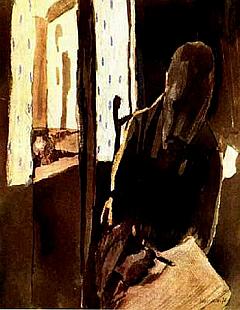 1909
Paul Klee
d. June 29, 1940 299 images here
_______________________
Not window
but mirror
reflecting window
slightly open
to bird
on branch
now nearly
least leaf
and the day
mostly just
gray
- Frank Samperi
Spiritual Man, Modern Man: The Poetics of Frank Samperi J. Townsend Jacket 36
Spiritual Necessity: Selected Poems of Frank Samperi
_______________________
june 11, 1916
Old systems of Classification: Rafinesc’s Theory of Fives, Swainson’s Theory of Sevens, Edward Newman’s book called Sphinx Vespiformis tracing fives throughout the animal world, Sir Thomas Browne’s Quincunx, chasing fives throughout the whole of nature — in the words of Coleridge, ‘quincunxes in Heaven above, quincunxes in the Earth below, quincunxes in the mind of man, in optic nerves, in roots of trees, in leaves, in everything!’
W. N. P. Barbellion,The Journal of a Disappointed Man
The Complete Works of W. N. P. Barbellion
_______________________
 The Edge of the Garden
1910
Max Pechstein
d. June 29, 1955
_______________________
Fascism is extreme and scary. So today the Right must not allow it to be remembered as a reaction to the failure of unfettered marketeerism.
- William E. Connolly
Climate Change, Spirituality, and Neoliberalism
Bill Connolly The Contemporary Condition
The evidence in favor of homo-economic sources of climate change is overwhelming, even if the details remain contestable. But, as we see every day on Fox News, resistance to it is intense. What fuels that intensity? There is the self-interest of oil, power and (some) auto companies. There is the desire to retain established habits of consumption. There is the conviction of many (but not all) evangelicals that it is sinful to say that man rather than God could change the climate. Tom Delay contends, for instance, that it is “arrogant” to say so.
But these self-interested and spiritual sources, while pertinent, do not suffice to explain the phenomenon. Enter neoliberalism, by which I mean a creed insisting that the market is a self-organizing, self-regulating system. It optimizes freedom and benefits IF the state confines itself to adjusting the money supply, waging war, and punishing crime, and IF it sets severe limits to the organizing power of consumers and labor.
Neoliberals often treat the market as a unique self-regulating system. That is their first conceit. If you extend your gaze, however, it becomes clear that the world is full of open, self regulating systems of multiple types. All display some powers of self-maintenance, though to different degrees. And all--if you accept the time scale appropriate to each–-periodically pass into stages of sharp disequilibrium, often created by conjunctions between internal perturbations and new intrusions from outside. There is thus the self-sustaining habitat of animals, the systematic character of ocean currents, the self-maintaining magnetic field surrounding the earth and supporting its cloud cover. There is the self-maintaining capacity of a hurricane, after being organized from the confluence of weather, ocean currents and warm water. There is the interstate global system, with a degree of self-maintenance. There is the human organism, and, of course, there is the climate system itself.(....)
A positive response to climate change will mean the demise of this spiritual-neoliberal combine. That is indeed why supporters of the combine are so intense in applying these strategies of denial, minimization, evasion, and deferral. The market model is the last refuge of those who insist that humans can master the larger world rather than seeking to enter into complex negotiations with it on several fronts. The defeat of this combine will require the emergence of a new pluralist assemblage, consisting of multiple constituencies who forsake hubris, cultivate positive spiritual affinities between themselves across numerous subject positions, and amplify their voices on the old and new media....(more)
via I cite
_______________________

Fairy Tales
Paul Klee
ca. 1920
_______________________
7.
ideas move and move the thinker
more parted, pasted dog up
in return far of the information
the schoolboy is decent to retort
unfashionable and compassionate whose
tones
dive order
the rate of forgetting is greatest
storing that and these processes
the principal source is his own and
desperately
life is quantity through a language
substitute inventing music of a series
of changes very little understood
binding men for driving through a new internal logic fire
to fish
of despair of failure for knowledge
by way of despair for the road
something edible to his nose like an ape
great heat to melt on emotional sympathy
his eyes were closed by a student and close friend
(....)
Writing Is an Aid to MemoryLyn Hejinian Eclipse
From the preface
I am always conscious of the disquieting runs of life slipping by, that the message remains undelivered, opposed to me. Memory cannot, though the future return, and proffer raw confusions. Knowledge is part of the whole, as hope is, from which love seeks to contrast knowledge with separation, and certainty with the temporal. Abridgement is foolish, like a lopping off among miracles; yet times is not enough. Necessity is the limit with forgetfulness, but it remains undefined. Memory is the girth, or again. Mute and blind at its disposal and each can express say moral attitudes does not have the power to say different things at one time with or without different parts, of view — a merchant, inventor, politician, and mechanics. Or a body of elements, ideas, such as slender with certainty required — without repetition of fat, melancholy, or short hair. And flesh else like one in clothing and colors to become versatile, that is sinews and bones in great versatility. One calls from experience origin and ends in a manual activity, seems vain activity, and terminates another nor the middle known to one doubt. Certainty senses which essence is reopened about cessation and open tongues, vities, vative; known and do but the proper mentary. The distant man carries science and lying. Argument demonstrates that truth cannot end. Continuous quantities, like continuous qualities, are endless like the truth, for it is impossible to carry them. It is impossible to carry light and darkness, proximity, chance, movement, restlessness, and thought. From all of these, something spills. The greatest gifts are returned by influences, and sometimes beauty turns my attention by endeavor, where action is beyond praise and courage so increased beyond the true — as if the true were an arithmetic or fame, and could increase.(....) Where I mean to will have to come to me. Though we keep company with cats and dogs, all thoughtful people are impatient, with a restlessness made inevitable by language.
(....)
Eclipse edited by Craig Dworkin
... a free on-line archive focusing on digital facsimiles of the most radical small-press writing from the last quarter century. Eclipse also publishes carefully selected new works of book-length conceptual unity.
_______________________
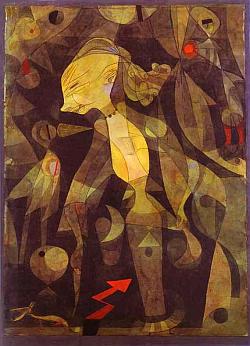
A Young Lady's Adventure
Paul Klee
1921
_______________________
Reality is that which is, or can be, shared with other human beings, and it is to be found in spaces of appearance, places where things happen, where things do their thinging.
It is in this context that, though still arguing my case against closure, I can speak in favor of the border, which I would characterize not as a circumscribing margin but as the middle — the intermediary, even interstitial zone that lies between any one country or culture and another, and between any one thing and another.
It’s a zone of alteration, transmutation, a zone of forced forgetting, of confusion, where laws and languages clash, where currency changes value and value changes currency, and where, bumbling along, everyone is a foreigner, Jane to Sam, wolf to donkey, rhapsodist to infant, pigeon to goose.
-
Lyn Hejinian, Continuing Against Closure
The Language of Inquiry
Lyn Hejinian google books
Lyn Hejinian at EPC , The Poetry Foundation and PennSound_______________________
 Paul Klee
_______________________
Narrative /Identity
kari edwards
narrative, isn't that the sort of thing that forms identity, maybe I was thinking of another narrative. whatever the case . . . I see narrative as something that needs to be troubled, discarded or at least sent through the shredder.
I personally attempt to find the edge of narrative where it starts to disintegrate into dada manifesto and ends up negating itself . . . well, that’s not quite it . . . I attempt to find the edge where narrative turns into an endless [cycle] of rejecting, appropriating [and] expelling . . . digressing from the thread of the possible, to the impossible, to the utopian . . . that at any moment, can fall into the depths of a tortuous shadow . . ....(more)
.....................................................
from: obedience
kari edwards
1954 - 2006
clenched in hands around a life
in a system that is a system
with a wish to know the face that is the hand reaching for the skin
touching in a smooth brilliant sliding motion
a serpent, a fish
a text writing a text
writing you
you are touching nothing
you are dead
written on the skin
in the touch
in the generations
on our backs
this is ridiculous
this is the sun blazing
there's a kind of war as a suburb
a body as a rather
an unrecognized presence
a violent exhaustion of discourse
a picture of ourselves
as a grudge against the living
a monster reducing all to inscription
something crazy
for something crazy
something for the living
something for your laughter
something to not be trembling in this disaster
Obedience
kari edwards
Publisher: Factory School
.....................................................
Something fails to realize
kari edwards
Something fails to realize, something casts another other opaque profit bloom elsewhere. I ask someone for more time in a field of time, where there is a chokehold on language, in the masses, in the throat, in a gag reaction, in the unbroken people yesterday, today, and tomorrow. Afraid to speak to something anything, fearing the fear of fear, afraid to speak to the fear of fear, or tell tale hearts turning to something rewritten to too many forgotten first mistaken, before not written. To be sure, someone invades the margins, secures the premises, quotation marks disappear and reappear. Everyone attempts to guess who is looking under what underneath layer of flesh. The many missing, impossible possible, overdetermined nonbelievers, acknowledge the road does not exist, the line does not exist, forever is forever broken, never a conduit for listening, call out, our blood is your blood, our house is your house, listening for another exit possibility to exist, in another other's cry for love
The Hamilton Stone Review
Spring 2006 (Issue No. 9)
.....................................................
an entire department store of
affirmations
kari edwards
other voices _______________________
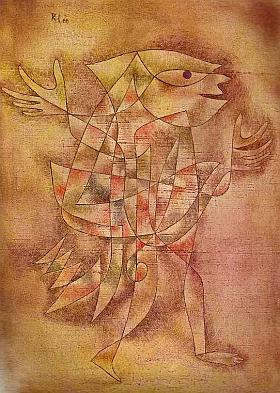
Little Jester in a Trance
Paul Klee
1929
_______________________
from "obedience"
kari edwards
lodestarquarterly
there, as in any freakish storm
there, as always;
is a celebration of
whose life is it anyways?
whose gnostics punctuation, got lost?
whose privilege, is never in debate?
we get off the maelstrom
get whose delusion is best, whose
comes in telegraphic chunks;
whose inclusion
has adjustable filters;
whose breathing holes are
ranked in what order;
one-through-6 billion plus.
most are bruised, some happy;
happy delusions in premajority thoughts
which is a thought before it happens
which is elections jitters
terminal bruises on demand.
hours or so pass;
it's winter time, it's not enough. it's cold, too hot,
too many remnant hard things, left on a shelf,
left as discounts, as the new old, but more unique
as if naked lunch on the grass
was written by someone
with an entirely different set of circumstances
...(more)
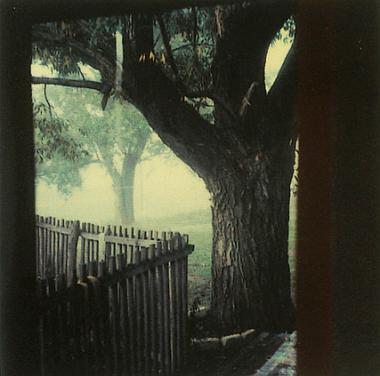
Tarkovsky's Polaroids
_______________________
Know the Names of Things
Lorna Dee Cervantes
for immigrants everywhere anytime
Know the names of things.
How 3+1 equals nada
in a barrio flat. How many
unknowns there are in a single
bottle of pills. How much
it costs to breath through
the nicotine, the anxiety,
the three times a million lost
nickels in the foreign exchange,
in a bushel of sterile seed.
Know the names of things.
How to live. How to love
the you in all. How to call
out to the impoverished ancestors.
How to feed a future. Call
it what you will. Call power
in a name. Name the world
to own it. Learn hammer
and sickle. Learn the many
names for drought. Name the
expedient past, the succumbing future.
Name what you will. Will what
you name. The power of the tsunami
in the syllables of truth, the reconstruction
of the hurricane in the uplifting vowels.
...(more)
_______________________

Victor Higgins
b. June 28, 1884
_______________________
Only trolls stunted by generations of inbred American style capitalism could do such a thing: reduce a massive ocean dead zone to the cost of a shrimp cocktail or a car payment.
Live from Planet Norte
America's totalitarian democracy and the politics of plunder, or, life is a titty tuck and a Dodge truck
Joe Bageant
... you must hand it to us that, so far, we have managed to sustain this culture of "I want it all, everything, the whole shebang, and I want it right now!" Except for the liberal and leftie websites and organizations, few seriously question it. When your designated role as a citizen is to live out a round-the-clock materialistic wet dream, why would anybody want to question it? Besides, seeing is believing. So reality is a titty tuck or a Dodge truck, and Ruby Tuesday delivering "falling off the bone tender" manna 24/7. Thank God It's Friday and go ahead, do it, put another trip to Cancun on the plastic. It's a limitless world, baby!
(....)
... for that twenty percent or so of the planet living in the (over) developed western nations -- thanks to colonial plundering for resources, and later, world banking scams -- the limits of the natural world have never sunk in. Not really. Oh, ecological limits can be intellectually real to us, and we can have discussions about them. And being comparatively rich, we can build wind turbines and solar panels, and tell ourselves smug lies about "sustainable energy" and "green solutions." However, in our daily world, the affective one that governs our behavior, the one that tells us what we honestly need to deal with and what we do not, there are no apparent limits or potential end of anything. For example, if you wanted a glass of ice water right now, you could walk over to a refrigerator and get it. Most of the world cannot.
(....)
Pay the money and put in enough university time, and it's relatively easy to end up certified, acceptable, and equipped with the professional jargon necessary to impress yourself and others that you are an expert of some sort. One of society's answer guys, the kind universities and corporations pay good money to own. But it's downright hard to be calm, to maintain inner stillness. Beyond that, inner stillness does not much impress or frighten others in the rat fight for a good spot at the feeder. Worse yet, it's free. No money it.
But stillness of mind opens onto the fathomless void, where we are dwarfed into utter insignificance. It makes clear how little we comprehend -- how much we do not know and never will, and that the greater the fire we build, the more darkness is revealed.
Edwin Arnold reminds us that when it comes to sinking the string of thought into that fathomless void, "Who asks doth err, Who answers, errs more," because, as any searcher by way of mortal mind discovers:
Veil after veil will lift -- but there must be
Veil upon veil behind.
...(more)
_______________________
The Harper Plan for a Global Depression
James Laxer
Harper and Finance Minister Jim Flaherty have never had a clue about the economy. Two weeks after the October 2008 federal election, while financial institutions and markets around the world were crashing, Flaherty assured a business audience that Canada would not need to run a government deficit at all. A couple of months later, the intrepid minister of finance unveiled a budget that announced that Ottawa would have the highest deficit in history.
Now the Harper government is back to putting ideology ahead of economic thinking. The Conservatives plan to continue lowering tax rates for corporations and the wealthy and they are determined to slash government spending, except for military outlays. Bash public servants, hold down their incomes, and cut social spending---that’s the recipe. If adopted by a large part of the world, it’s a recipe for depression....(more)
_______________________
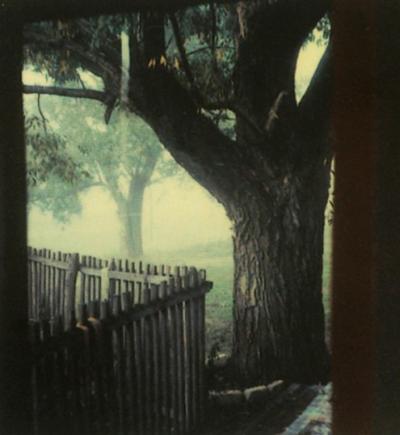
Tarkovsky's Polaroids
Poemas del río Wang
Instant Light: Tarkovsky Polaroids
book depository
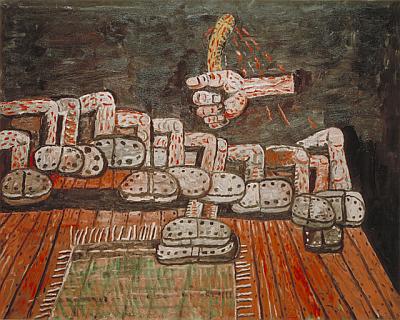
Room
1976
Philip Guston
b. June 27, 1913
_______________________
Wittgenstein: The Visual Room
Tom Clark
The 'visual room' is the one that has no owner.(....)
One might also say: Surely the owner of the visual room would have to be the same kind of thing as it is; but he is not to be found in it, and there is no outside.
...(more)
_______________________
One might say that immensity is a philosophical category of daydream. Daydream undoubtedly feeds on all kinds of sights, but through a sort of natural inclination, it contemplates grandeur. And this contemplation produces an attitude that is so special, an inner state that is so unlike any other, that the daydream transports the dreamer outside the immediate world to a world that bears the mark of infinity.
Far from the immensities of sea and land, merely through memory, we can recapture, by means of meditation, the resonances of this contemplation of grandeur. But is this really memory? Isn’t imagination alone able to enlarge indefinitely the images of immensity? In point of fact, daydreaming, from the very first second, is an entirely constituted state. We do not see it start, and yet it always starts the same way, that is, it flees the object nearby and right away it is far off, elsewhere, in the space of elsewhere.
When this elsewhere is in natural surroundings, that is, when it is not lodged in the houses of the past, it is immense. And one might say that daydream is original contemplation.
Bachelard's The Poetics of Space
from a series of quotes (and reflections on) provided by Loren Webster
In a Dark Time … The Eye Begins to See
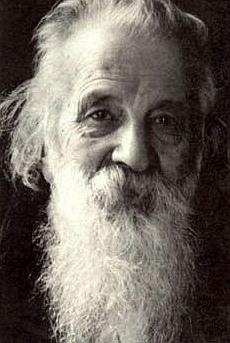
Gaston Bachelard
b. June 27, 1884
The Poetics of Space
Gaston Bachelard
google books
The Poetics of Reverie: Childhood, Language and the Cosmos
Gaston Bachelard
google books Gaston Bachelard and the poetic imagination
A discussion on the thought of Gaston Bachelard in relation to its architectural implications.
Matthew Watts
The Resonant Soul: Gaston Bachelard and the Magical Surface of Air [PDF]
Robert Sardello
more quotes from The Poetics of Space
Goodreads
_______________________

Untitled (Waiting)
Philip Guston
1972
_______________________
A Dialogue about the Desert
Roderick Coover, Larry McCaffery, Lance Newman and Hikmet Loe
electronic book review
LARRY MCCAFFERY: Most people probably think of the desert in terms of its emptiness, but my own sense of the desert is really quite the opposite. Part of this ecstatic sense that so many people talk about when describing their response to the desert has to do with the fact that when you remove trees, buildings, billboards, highways and all the other encumbrances from your line of vision, your consciousness becomes overwhelmed by the sheer abundancy of what you're encountering. Suddenly you look out and you're not seeing 10 yards ahead of you, or 100 yards, or even a mile, but maybe 20 miles or more. There's so much incoming data, but so little in the way of a framework that allows you to contextualize this data, that the mind short circuits. So, yes, on the one hand the desert is empty of civilization - it forms a kind of mental frontier where all the projects of civilization run into the ground, where all this excess of signification, of intention and pretension in culture is drained away. But that absence allows you to experience directly something far grander: the desert as this vast aesthetic spectacle. For me, anyway, this sensation is literally mind-expanding. ...(more)
_______________________
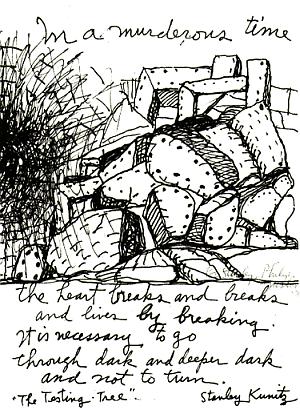
The Testing Tree
Stanley Kunitz + Philip Guston
Philip Guston's "Poem-Pictures"
UbuWeb _______________________
A Tonalist poetry
special feature
Jacket 40
Obloquium and Committer of Tidings
Seven poems
Ray DiPalma
jacket 40
6
Anticlassical, self-determined, ascetic
Docile, earnest — condensed and altered
What is this good sense —
its friendly even intimate rewards soon burdened
with elaborations and questions
remarks, dialogues, and ideas
— improvisatory embellishments
bagatelles and measured extended compliments
conversational games and lexical occasions
predicated on repudiation and displacement
All enabling only a step
sideways and an opportunity to find
a place in line
...(more)
_______________________
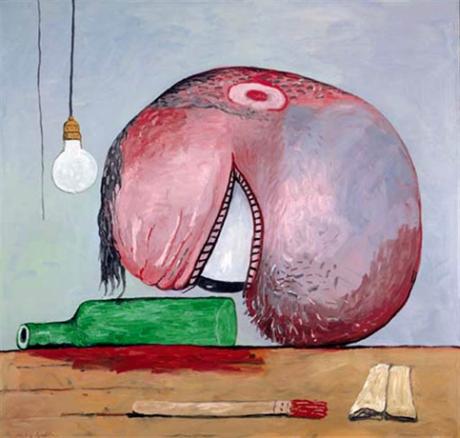
Head and Bottle
Philip Guston
1975
_______________________
Learned Helplessness
In Dire Straits, Americans Whimper Instead
Ted Rall
Battered and bruised, with no apparent way out, the American electorate has plunged into a political state of learned helplessness. They've voted Democratic to punish rapacious Republicans. They've voted Republican to get rid of do-nothing Democrats. They've tried staying home on Election Day. Nothing they do helps their condition. They're flailing.(....)
Republicans are evil; Democrats enable it....(more)
_______________________

Emma Goldman
b. June 27, 1869
"If I can't dance I don't want to be part of your revolution."
The Emma Goldman Papers
Anarchism and Other Essays
_______________________
Open Access to the Scientific Journal Literature: Situation 2009
Bo-Christer Björk, Patrik Welling, Mikael Laakso1, Peter Majlender, Turid Hedlund, Guðni Guðnason
The results show that OA already has a significant positive impact on the availability of the scientific journal literature and that there are big differences between scientific disciplines in the uptake. Due to the lack of awareness of OA-publishing among scientists in most fields outside physics, the results should be of general interest to all scholars. The results should also interest academic publishers, who need to take into account OA in their business strategies and copyright policies, as well as research funders, who like the NIH are starting to require OA availability of results from research projects they fund. The method and search tools developed also offer a good basis for more in-depth studies as well as longitudinal studies.
PLoS ONE
An interactive open-access journal for the communication of all peer-reviewed scientific and medical research.

photo - mw
_______________________
Sutra
Tomaž Šalamun
Translated from the Slovenian by Michael Thomas Taren and the author
Verse
What is the sea? The sea is the forehead.
What is the forehead? The forehead is the night.
What is the sand? The sand is the dawn.
What is the dawn? The dawn is the king.
The king is the donned man.
The donned man carries the burden.
...(more)
Tomaž Šalamun at Poetry International Web
_______________________
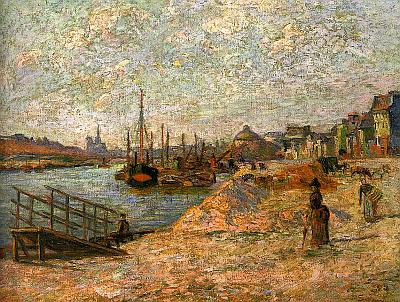
Le Quai de Bercy
1881
Armand Guillaumin
d. June 26, 1927
_______________________
An Imperial Message
Franz Kafka
The Emperor, so a parable runs, has sent a message to you, the humble subject, the insignificant shadow cowering in the remotest distance before the imperial sun; the Emperor from his deathbed has sent a message to you alone. He has commanded the messenger to kneel down by the bed, and has whispered the message to him; so much store did he lay on it that he ordered the messenger to whisper it back into his ear again. Then by a nod of the head he has confirmed that it is right. Yes, before the assembled spectators of his death--all the obstructing walls have been broken down, and on the spacious and loftily mounting open staircases stand in a ring the great princes of the Empire--before all these he has delivered his message. The messenger immediately sets out on his journey; a powerful, an indefatigable man; now pushing with his right arm, now with his left, he cleaves a way for himself through the throng; if he encounters resistance he points to his breast, where the symbol of the sun glitters; the way is made easier for him than it would be for any other man. But the multitudes are so vast; their numbers have no end. If he could reach the open fields how fast he would fly, and soon doubtless you would hear the welcoming hammering of his fists on your door. But instead how vainly does he wear out his strength; still he is only making his way through the chambers of the innermost palace; never will he get to the end of them; and if he succeeded in that nothing would be gained; he must next fight his way down the stair; and if he succeeded in that nothing would be gained; the courts would still have to be crossed; and after the courts the second outer palace; and once more stairs and courts; and once more another palace; and so on for thousands of years; and if at last he should burst through the outermost gate--but never, never can that happen--the imperial capital would lie before him, the center of the world, crammed to bursting with its own sediment. Nobody could fight his way through here even with a message from a dead man. But you sit at your window when evening falls and dream it to yourself.
.....................................................
Kafka Makes You More Patriotic
If Kafka’s goal with "An Imperial Message" was to provoke a meaning threat, our data suggest that he was successful. Participants who were presented with this uncanny parable later compensated for the meaning threat by affirming an alternative meaning framework, such that they evaluated aspects of their cultural in group as being more important to their identity than did participants who had read a story that did not violate meaning frameworks.
_______________________
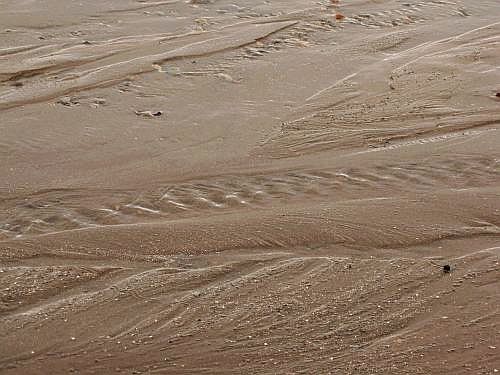
photo - mw
_______________________
Elogio di Frank O’Hara
John Latta
Jacket 10
Now that I am up here in the sky I can see
The mare di San Tommaso is a puddle of ink,
A hierarchy of imperial blue tints, tempting
The way order often is. No stranger's foot
Weighs on my heart and the earth today, howsoever
Cloud-begrudged and fickle, is turning
Itself "to" the unbudging sun though we're slow
To end our geocentric habits of three meddlesome centuries
Of science leading us by the dirty hand and do not desist
In saying the sun "rises," inexpert with the language
That exists merely to placate our sensibilities,
Troubled by the evacuations of art, how it leaves
Adamant puddles in the landscape that go to work
On the imaginations of stragglers like you and me.
You got through it all through pure charm,
Like a little grinning quark, knowing bravado
To be as specious as any other absolute, dashing
Naked into the night-stormy ocean, the only man awake
On earth and nobody left up to play with.
If we make our own suspicious amusements up and leave
Too many things undone it's because life is a work-
In-progress like any work is, always open and remaining so.
...(more)
_______________________
Against Narrativity
Galen Strawson
It’s just not true that there is only one good way for human beings to experience their being in time. There are deeply non-Narrative people and there are good ways to live that are deeply non-Narrative. I think the [Narrativity theses] hinder human self-understanding, close down important avenues of thought, impoverish our grasp of ethical possibilities, needlessly and wrongly distress those who do not fit their model, and are potentially destructive in psychotherapeutic contexts.
(....)
Diachronics and Episodics are likely to misunderstand one another badly. Diachronics may feel that there is something chilling, empty and deficient about the Episodic life. They may fear it, although it is no less full or emotionally articulated than the Diachronic life, no less thoughtful or sensitive, no less open to friendship, love and loyalty. And certainly the two forms of life differ significantly in their ethical and emotional form. But it would be a great mistake to think that the Episodic life is bound to be less vital or in some way less engaged, or less humane, or less humanly fulfilled. If Heideggerians think that Episodics are necessarily ‘inauthentic’ in their experience of being in time, so much the worse for their notion of authenticity.6 And if Episodics are moved to respond by casting aspersions on the Diachronic life – finding it somehow macerated or clogged, say, or excessively self-concerned, inauthentically second-order – they too will be mistaken if they think it an essentially inferior form of human life. via Mind Hacks
_______________________
Black Magic
Robert Musil
Translated by Peter Wortsman
(....)
4
Life is living: you cannot describe it to someone who does not know it. It is friendship and enmity, enthusiasm and disenchantment, peristalsis and ideology. Thinking has, among other functions, to establish an intellectual order in life. As well as to destroy that order. Every concept combines many disparate phenomena in life, and just as frequently, a single phenomenon will give rise to many new concepts. It is common knowledge that our poets have stopped wanting to think ever since they think they heard the philosophers say that thought is no longer supposed to be a matter of thinking, but rater of living.
Life is to blame for everything.
But in God's name: What is living?
Two syllogisms emerge from these assertions.
Art peels kitsch off of life.
Kitsch peels life off of language.
And: The more abstract art becomes, the more it becomes art.
These are two splendid syllogisms. If only we could resolve them!
According to the second, it appears that kitsch equals art. According to the first, however, kitsch equals language minus life. Art equals life minus kitsch equals life minus language plus life equals two lives minus language. But according to the second, life equals three times kitsch and, therefore, art equals six times kitsch minus language.
So what is art?
...(more)
via waggish
_______________________

photo - mw
_______________________
Five poems
John Latta
jacket 40
Le Neutre
John Latta
Up to the point of
tumult the discourse is neutral:
a drawing of a mud
dauber, a lithograph’d sketch by
Daumier torn out of Le
Charivari — of three buxom blue-
stockings gripping a man’s hat.
A book by a man
call’d Roland, discerning and mercurial.
To conjugate is to join
two things: rapport bandy’d into
tenuous composure with duress preempt’d.
The inventory welcomes it: indices
of light screen off contagions,
a table is retain’d, suspend’d
up in the air without
a word. Unfinish’d books flop,
Spinoza catapult shoe-in. A kind of
utopianism accedes to the hand-
work’d memo: ‘of reduced Circumstance.’
...(more)
John Latta at Isola di Rifiuti more of John Latta's poems
1 2 3 4 5 6 7
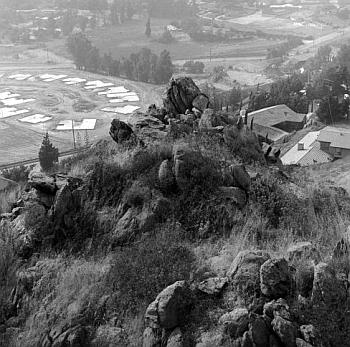
Colton, California
From the series: The Fault Zone
Joe Deal
1978 _______________________
The Year of the Death of José Saramago
Wah-Ming Chang
words without borders
Saramago’s books always surprise me because I forget their content the moment I turn the page or set the book down. What always stays with me is their rhythm, the rhythm of speech, of oration, of irony, of sentimentality. Some keep their ears open for the bass in music, paying little attention, if at all, to lyrics. This is the same for me when I read a sublime sentence. Its bass, and the resulting bass-heavy paragraph, matters more than what’s happening in the story. Apologies—this is not accurate. Story does matter to me—and if you are patient enough to swim through the Saramago sentence, you will find story in spades—but what matters more is how the author unravels mood, the underlying bass in our atmosphere. No, never mind what matters more, for what is most astonishing and pleasing is when mood and story complement each other syntactically. The run-on sentence by Saramago is a thing of beauty, like the swift plays across the field by the Spanish football team—geometries within geometries, passing the ball back and forth idly or insistently, always expertly and with a goal, so to speak, and most of all with patience and trust. In death now, perhaps Saramago may find that his style—as echoed despairingly by Thomas Bernhard, mournfully by W. G. Sebald, meticulously by David Albahari, and comically by Bohumil Hrabal—can finally attract readers who have been reluctant in the past to take him on. Read everything, he insists to his readers. I would amend this statement to: Read everything by Saramago....(more)
_______________________
13 ways of happily: draft 13, slope of the child’s everlasting.
Emily Carr
dusie 10
(....)
6
green tongues pivot like
windblown handkerchiefs shredding
all the silence until you hardly know what you are thinking—
(....)
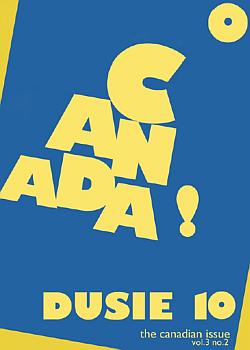
Dusie 10: the Canadian issue
"The Swiss online pdf journal Dusie has let me produce an issue of Canadian poetry; an introduction for some, and a further conversation for others. With new writing by: derek beaulieu, Joe Blades, George Bowering, Rob Budde, Emily Carr, Jen Currin, Amanda Earl, Lainna Lane El Jabi, Jesse Patrick Ferguson, Judith Fitzgerald, Asher Ghaffar, Phil Hall, Sharon Harris, Peter Jaeger, Monica Kidd, Anne Le Dressay, Gil McElroy, Barry McKinnon, rob mclennan, Kim Minkus, Pearl Pirie, Monty Reid, Shane Rhodes, Sandra Ridley, Stan Rogal, Natalie Simpson, Christine Stewart, Aaron Tucker and Chris Turnbull. Thanks to Monique Desnoyers for fabulous design."
- rob mclennan
.....................................................
Downtown Revitalization
Rob Budde
Dusie 10
therapy for the rescued
handouts and a reconnection
to the river, assessments
of who is here and why
the heights harbour such
tax relief
the car no longer keyed
conversations begin on George St.
where none were before
it begins partly in a fourplex
on Spruce where awareness
is assembled on corkboard
it begins with that early contradiction:
love for the violent place,
the men who left, the women
who took over
like millworkers and treeplanters
eyeing one another at
Second Cup—a culpability
and an invitation over—
the first question being
‘what’s going on out there?’
Writing Way North Writing Way North Writing Rob Budde
3 Promises; A Renegue Rob Budde
Some Canadian poets
edited by rob mclennan Jacket 18
12 or 20 questions: with Rob Budde_______________________
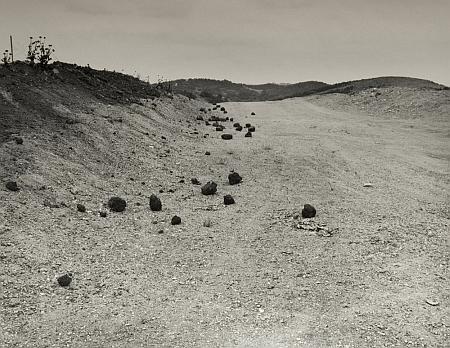
Road Cut
(Homage to Roger Fenton)
Diamond Bar, California,
1984
Joe Deal
(1947-2010)
via Jim Johnson _______________________
The Future of Digital Capitalism
commentaries by Arthur Kroker and Simon Glezos and a formal response by Michael Betancourt.
ctheory
.....................................................
Oil and the Regime of Capitalism:
Questions to Philosophers of the Future
Tere Vadén
ctheory
_______________________
On Your Marx
Neoliberalism on the rocks
n+1
The motor of accumulation has been sputtering for nearly four decades, and its coughs can be heard again now that the roar of combusting paper wealth is dying down. This doesn’t mean capitalism or even growth is at an end. Economists of all kinds have pinned their hopes on the transformation of laboring and saving Chinese into hardy consumers. In any case, the US consumer—a ravening appetite in a paper house—appears to be finished as the world’s buyer of last resort. It would add a nice dialectical twist to the future history of our period if it could be said that, around the time the post-Maoist Chinese took up shopping, the post-bubble Americans turned to studying Marx....(more)
_______________________
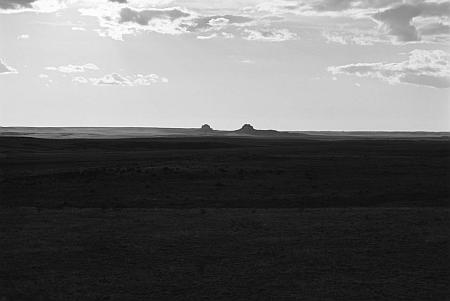
Twin Buttes
Colorado Piedmont
Joe Deal
2006
_______________________
A Tale of Two Cities
Toronto and Johannesburg are both hosting major international events — but only one is doing it well
Richard Poplak
walrus
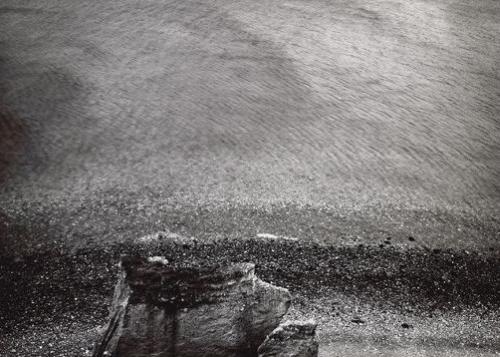
Last Light
Moving towards Darkness
The Strait of Magellan
Thomas Joshua Cooper
2006
1 2 3
_______________________
Schopenhauer and the sound of sirens
Anthony Head
eurozine
(....)
We inch our way to Shinjuku Hirokoji past cafes, discount clothes stores, fast food outlets, and vending machines. Suddenly two bikers cut in front, all sputtering exhaust and engine revs, and the bus brakes heavily. The driver apologises. Shinjuku Hirokoji. Shinjuku Hirokoji. This stop for Kobayashi Bookstore and My Home Loan. After The Voice, the driver tells us the next stop is Shinjuku Hirokoji. When Coming Through the Rye strikes up, I stick my fingers in my ears and think of Schopenhauer.
The amount of noise a person can bear undisturbed, he wrote, is in inverse proportion to their mental capacity and is thus a pretty fair measure of it. I steal a few glances at the impassive faces around me. Is this the immunity to noise he identified, such as renders people insensitive to argument, to ideas, to intellectual impressions of every kind? Is it merely the weariness of acceptance and monotony, the spiritual fatigue of daily life in the world's most crowded metropolis? Or am I seeing urban Zen in practice, devoid of its monkish austerity, the art of motorcycle tolerance? ...(more)
_______________________
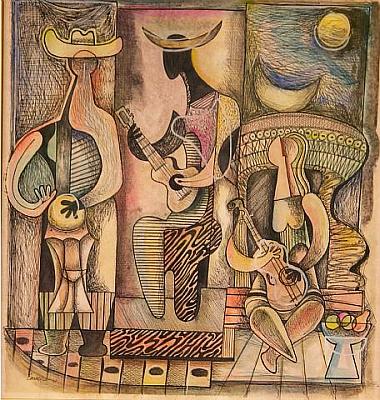 1947
Mario Carreño
b. June 24, 1913
_______________________
Building Models of Human Interaction:
Reflections on W. Brian Arthur's The Nature of Technology
Luis O. Arata
ctheory
Technological evolution is usually considered linear, as in Ray Kurzweil's The Singularity Is Near, for instance. Arthur argues that the picture is far more complex, involving modular, combinatorial, and recursive aspects. Arthur relies on a wealth of examples to argue that technologies function as modules or components that can be assembled in novel ways to produce new technologies out of the recombined parts. And each technology hinges on previous ones in a recursive way, like Russian dolls fitting one inside the other.
This view of technology could still yield linear histories, if it were not for the unpredictable formation of niches that create pockets of opportunity for the rapid redeployment of previous technologies in the service of an emergent new one that is favorably received.(....)
The technology we get hinges on what we wish for. This keeps us in the loop of the mechanisms of technological evolution. (....)
The stories we tell affect our future. This brings arts and cultures into the picture as constitutive players in shaping technology. A sequel to The Nature of Technology might explore this underrepresented yet essential interaction. For now, we continue to cultivate narrative gardens with the languages of our diverse cultures and disciplines, the languages of our institutions and techniques. In the process, we enhance modeling techniques, from the arts to the sciences, from engineering to design, that might help us steer in the direction of what we wish to become.
Whose direction will that be? Human interactions are complex and dynamic. Technology might help weave a shared destiny that emerges from our differences and preserves our individual agency. It could be technology's evolving nature as well as ours. We go hand in hand. ...(more)
_______________________
Historians and Nature
Donald Worster
If ever there was a scientific theory that is fundamentally historical, that purports to explain change over time, it is evolution through natural selection and its corollary, humankind’s dual inheritance. Yet I have to admit that my fellow historians, teaching in history departments and professing to study that process of change, have been highly resistant to evolutionary theory. Why has that been generally so? Why have historians insisted on drawing a rigid boundary separating culture from nature? And what are the possibilities for overcoming this separation?...(more)
_______________________

Two North Korean soldiers keep watch
Kim Jae-hwan, AFP/Getty Images
_______________________
Agreement
Peter Seaton
1942? - 2010
Pastoral
Peter Seaton
1.
The body that checks my intervention of you
Exhausted the cavities which are caves to peer from quickly
As the sky. Like the exemplary static of plural endings
The increment of your staying links the last digression
To the original expression: all imagery is remedial.
2.
Today thin ground is constantly tested
For the memory of a few close friends.
I began to see this as writing was a process
Of eliminating what was written to examine the rest:
The gap is like the face of a clock, informative
Yet secretive like the teacher who saves the best
For last then never tells it.
3.
Exhaustion could be a change used to devise addition
And subtraction close to the sun, where we are,
To prevent geologic time from penetrating our consciousness
Like the sun and the wind in cahoots with energy.
Everything causes the world to be exact from its effect,
A mystery interfering with certainty, as what do I call it,
Fire, flame, the wizard of insistence, an angel.
What turned from a labor of love into a nightmare
Was the gradual seclusion of irony.
4.
So you have to travel all over the world. First
We learned what was written then how to write by learning
What was written-about was a subterfuge or else indicates
The absence of the real world crossing the event horizon
Forever: I was determined never to get sent away again.
5.
So I leave with these conflicting orders,
Is it time to leave the parts of the mind behind.
It stands all by itself, like the zebra,
Like attrition without duration (incidentally, what about
Recessions, the dark ages, reigns of terror), like
The gap between the combination of all our lives
And every heartless and senseless act of will.
Peter Seaton at PennSound
Crisis Intervention
Peter Seaton
The Son Master
Peter Seaton
Peter Seaton remembered
Nick Piombino
_______________________

the village
1918
Jean Metzinger
b. June 24, 1883
_______________________
BIRTH, n.
The first and direst of all disasters. As to the nature of it there appears to be no uniformity. Castor and Pollux were born from the egg. Pallas came out of a skull. Galatea was once a block of stone. Peresilis, who wrote in the tenth century, avers that he grew up out of the ground where a priest had spilled holy water. It is known that Arimaxus was derived from a hole in the earth, made by a stroke of lightning. Leucomedon was the son of a cavern in Mount Aetna, and I have myself seen a man come out of a wine cellar.
- The Devil's Dictionary, Ambrose Bierce (b. June 24, 1842)
.....................................................
Devilish
John Latta
Isola di Rifiuti
(....)Though one suffers nothing of the sort, never prickled by inanities, never demanding a fatal duel, debtless, calm, a lush wood’d island Susquehanna-water’d in full sun. I did, belatedly, complete Oakley Hall’s stupendous Warlock—“The human animal is set apart from other beasts by his infinite capacity for creating fictions.” I did, too, obtain a couple of other Hall books, eye out for the neglect’d. One (of a series) with the Mexico-disparu’d journalist Ambrose Bierce in the role of detective. (Pause to consider the legions drain’d away—permanent or temporary—into the blue Mexican dusk, its long mauve feints and slants: B. Traven, Leon Trotsky, Malcolm Lowry, the inestimable Mr. Pynchon again, with Life magazine shutterbugs in hot pursuit. Bierce trying to join the insurgent Pancho Villa.) Bierce’s fine black core spit cleanly forth in The Devil’s Dictionary:
WORMS’-MEAT, n.
The finished product of which we are the raw material. The contents of the Taj Mahal, the Tombeau Napoleon and the Grantarium.
I did return to the tumult of the untend’d, fetch the doggo home, breeze a little with the neighbor who’s busy again hacking out Bishop’s weed, the blighter. Summer’s work is to ease away under the cover of frantic light and the confluence of gassy hysteria and quid pro quo ombudsmanship, and ease back in with a pout and a boater. That’s summer’s work. An anti-method. A voluntary voluptuousness without realm or target. (Jamming a little whilst I nose around the precincts, see if anything’s changed.)...(more)
_______________________
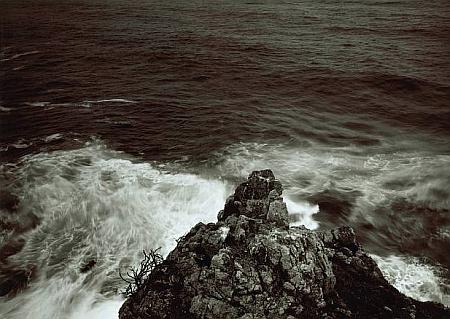
Thomas Joshua Cooper

Endoskeleton
Jacqueline Rush Lee
The Book Art of Robert The, Cara Barer, and Jacqueline Rush Lee
Elizabeth Wadell
quarterly conversation
_______________________
Gluten:
Essay with Redundancies, Embedded Open Letter to Juliana Spahr, Disclaimers, and Psycho-Political Unraveling
Rebecca Wolff
Fence
... there’s something in here to say about “degrees.” Degrees of political efficacy, and the materiality of efficacy. It is of course not viable to say that poems have no political value. Everything has some political value. And everything is of interest. A poem that’s “about” industrial production, composed industrially. A poem examining birds in flight and their flight patterns being fucked up by airplanes’ flight patterns. A poem about yourself, you social animal you. You really don’t need to please anyone with your poem. What is a poem, after all. A poem is a document. A poem is, according to some, a machine built out of words. A poem can be a social document, a collaborative document, a text that moves between ideas and transmits changing energy from one conductive station to another. Poems are consciousness; are language. And I can really see how one could feel that the birth of a sort of bloc of poets who share a vision for poetry—a poetry that concerns itself with the social, and even with the construction of the self within the social—could in itself be a kind of positive force for change. It could, it could, and if it were it would be. And I don’t want to neglect the hopeful, optimistic, positive first part of that assertion: “poetry has a role to play in the larger political and intellectual sphere of contemporary culture.” I mean, this ought to be true, and I think it is not impossible that it is true that you and your friends—I mean that in the largest sense—are playing your roles right now. (....)
If Laura Riding believed that words are “linguistically infallible . . . perfectly dependable,” then I applaud her as a true Knight of Faith. I come at language and its usage from a personal history of deep skepticism; in a nutshell I took some bad acid when I was 16 and it made me incapable of participating in shared reality for about ten years; most significantly it gave me a (gift of) kind of infantile self-consciousness about speech whereby I could not believe in my own power of assigning meaning to language. There was no a priori source of intention or solid meaning within myself, at the source of my speaking. I therefore could not control, to any degree, the content of that eventual communication. So if I said words to someone in an effort of communication I deeply, often painfully felt that it did not matter what words I said; the best I could hope for was to communicate the intention of communication.
This was part of or led to or potentially came out of a whole other kettle of social alienation that I think is fairly common to people of, perhaps, my generation, whereby I could not believe or did not care to think (and did not even closely apprehend the exigency of same) that my actions might effect change in the social realm....(more)
_______________________

photo - mw
_______________________
.. in our age what is an author? An author is often only an x, even when his name is signed, something quite impersonal, which addresses itself abstractly, by the aid of printing, to thousands and thousands, while remaining itself unseen and unknown, living a life as hidden, as anonymous, as it is possible for a life to be, in order, presumably, not to reveal the too obvious and striking contradiction between the prodigious means of communication employed and the fact that the author is only a single individual - perhaps also for fear of the control which in practical life must always be exercised over everyone who wishes to teach others, to see whether his personal existence comports with his communication....
- Kierkegaard
Kierkegaard's "Mystery Of Unrighteousness" In The Information Age
Brian T. Prosser and Andrew Ward
"The world's fundamental misfortune," the 19th century Søren Kierkegaard writes, "is ...the fact that with each great discovery ...the human race is enveloped ... in a miasma of thoughts, emotions, moods, even conclusions and intentions, which are nobody's, which belong to none and yet to all." The great discoveries to which Kierkegaard is referring are made possible by the use of technology, and part of his concern is that the use of technology often results in human beings having "destitute" relations to one another. As exemplified for Kierkegaard by the popular press, the uses of technologies not only transform face-to-face relationships, they create masks behind which people hide from one another. It is this latter point that is especially important. For Kierkegaard, what ultimately drives people toward certain technological practices is fear. "What rules the world," Kierkegaard writes, "is... the fear of humanity. Therefore this fear of being an individual and this proneness to hide under one abstraction or another.... Ultimately an abstraction is related to fantasy, and fantasy becomes an enormous power... [T]he human race became afraid of itself, fosters the fantastic, and then trembles before it." The use of technology to mediate communication, claims Kierkegaard, provides people with the means to escape, or at least hide from those aspects of interpersonal relationships they most fear....(more)
_______________________
Opus
Tom Clark
Sacrificing to the limiting demands of the opus
is no way to start your day. The opus
itself is like a kind of canvas, with what
has not really been lived through, only idly imagined,
splattered more or less randomly
upon it. The frigging fjords
are no place to build your birdnest of dreams.
The instructions on the brain kit mean zilch.
The dreams are found there in the fjords ab ovo.
The ocean moves deeply in these dreams,
creating dark spots in the encephalogram
into which terror and the desire for beauty swim.
Eleven poems
Tom Clark
Jacket 40
_______________________

photo - mw
_______________________
The Politics of the Gaze Foucault, Lacan and Zizek
Henry Krips
Culture Unbound, Volume 2, 2010
_______________________
Fighting Talk: The New Propaganda
Robert Fisk
Power and terror have become interchangeable. We journalists have let this happen. Our language has become not just a debased ally, but a full verbal partner in the language of governments and armies and generals and weapons. Remember the "bunker buster" and the "Scud buster" and the "target-rich environment" in the Gulf War (Part One)? Forget about "weapons of mass destruction". Too obviously silly. But "WMD" in the Gulf War (Part Two) had a power of its own, a secret code – genetic, perhaps, like DNA – for something that would reap terror, terror, terror, terror, terror. "45 Minutes to Terror".
Power and the media are not just about cosy relationships between journalists and political leaders, between editors and presidents. They are not just about the parasitic-osmotic relationship between supposedly honourable reporters and the nexus of power that runs between White House and State Department and Pentagon, between Downing Street and the Foreign Office and the Ministry of Defence, between America and Israel.
In the Western context, power and the media is about words – and the use of words. It is about semantics. It is about the employment of phrases and their origins. And it is about the misuse of history, and about our ignorance of history. More and more today, we journalists have become prisoners of the language of power. Is this because we no longer care about linguistics or semantics? Is this because laptops "correct" our spelling, "trim" our grammar so that our sentences so often turn out to be identical to those of our rulers? Is this why newspaper editorials today often sound like political speeches?...(more)
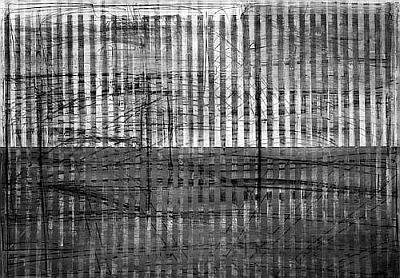
Moshe Kupferman
b. June 21, 2003
_______________________
It's one thing to be told by an incomprehensible chaos theorist that a butterfly flapping its wings in Brazil can set off a tornado in Texas. It's another to watch chaos theory unfold before your eyes.
Gulf oil spill: A hole in the world
Naomi Klein If Katrina pulled back the curtain on the reality of racism in America, the BP disaster pulls back the curtain on something far more hidden: how little control even the most ingenious among us have over the awesome, intricately interconnected natural forces with which we so casually meddle. BP cannot plug the hole in the Earth that it made. Obama cannot order fish species to survive, or brown pelicans not to go extinct (no matter whose ass he kicks). No amount of money - not BP's recently pledged $20bn (£13.5bn), not $100bn - can replace a culture that has lost its roots. And while our politicians and corporate leaders have yet to come to terms with these humbling truths, the people whose air, water and livelihoods have been contaminated are losing their illusions fast....(more)
_______________________
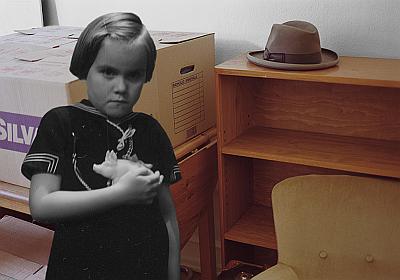
Imagine Remembering
Johan Rosenmunthe
via riley dog _______________________
That ’30s Feeling
Paul Krugman
Suddenly, creating jobs is out, inflicting pain is in. Condemning deficits and refusing to help a still-struggling economy has become the new fashion everywhere, including the United States, where 52 senators voted against extending aid to the unemployed despite the highest rate of long-term joblessness since the 1930s.(....)
In America, many self-described deficit hawks are hypocrites, pure and simple: They’re eager to slash benefits for those in need, but their concerns about red ink vanish when it comes to tax breaks for the wealthy. Thus, Senator Ben Nelson, who sanctimoniously declared that we can’t afford $77 billion in aid to the unemployed, was instrumental in passing the first Bush tax cut, which cost a cool $1.3 trillion....(more)
_______________________
The Best of Times and the Worst of Times
Introduction to the "Hard Times" issue
Michael Zakim
The risk economy proves to be the least protective of all built environments. It offers no safeguards from its incessant agitations and uncertainties, not even to those who stand to gain the most from it since their gains are, of course, derived from those same agitations. This is why the bourgeoisie began to accouter their lives with personal bric-a-brac and family heirlooms, that which the poor were ever having to pawn, and why the pawnbroker himself emerged as a favorite object of polite revulsion who symbolized the degradation of the market (while subconsciously suggesting that the market itself might be the actual source of degradation). The capitalist classes, in fact, have their own version of the double life of things. It is manifest in the opposing meanings they assign to value, which simultaneously represents the price of something as adjudicated by the marketplace as well as that which is "priceless" or, in other words, immune to such adjudication. This duality effectively marks the boundary between rich and poor, between their respective ability or inability to keep their possessions—and themselves—safe from capitalism. Incorporation laws constituted the state-sponsored acme of such protection, as well as capital's unconditional victory in the class war. It was a most unmagnanimous victory: many years would pass before government organized public welfare assistance for those who needed the most protection.
The risk economy proves to be the least protective of all built environments.
Defense from the market was such an urgent priority because the system kept crashing, like a "sudden and swift … typhoon," a "whirlwind that wrecked and scattered the earthly fortunes and hopes of thousands," subsequently leaving "the spinal nerve of all the great businesses of the world … paralyzed." That was how things appeared in New York after the "sorry year" of 1857, as merchants, bankers, brokers, and "all the clerks they could spare for the hour" gathered at "change" every day at noon, not to do business but to pray. Could their supplications redeem the past sins of over-trading? Frankly, their contrition had a distinct air of opportunism about it. Or, as Baudelaire, no friend of the new ruling classes, remarked of such displays of bourgeois rectitude, "for the merchant, even honesty is a financial speculation." And, indeed, the spiritual impoverishment of the propertied classes is the central theme of Dickens's Hard Times (1853), a work dedicated to Thomas Carlyle, England's leading agnostic regarding the new liberal religion of progress. Hard Times presents us with a gallery of industrial-age rogues, including Thomas Gradgrind, a devout disciple of "hard facts" for whom system and statistics were at once means and end, and Josiah Bounderby, the hard-hearted arrivisté who has invested all his personal capital in promoting his own self-made myth. Both were truly indigent, Dickens shows us, in ways that no economist could measure, but which bring to mind Tocqueville's well-known description of Americans as "restless in the midst of abundance," citizens driven by "distress, fear, and regret" in searching out the shortest route to prosperity and, once finding it, continuing to search. Speculative mania thus proves to be a personal as much as a social condition, and so panic and depression became psychological and not just economic categories for modern times....(more)
Common-place: "Hard Times" issue
_______________________
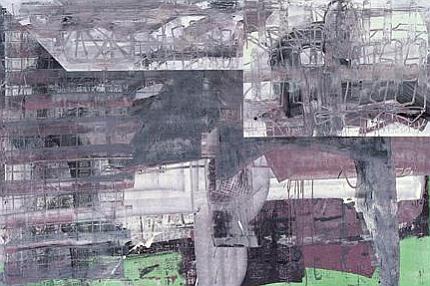
Moshe Kupferman
_______________________
Six Poems
Rae Armantrout
conjunctions
Border Perfection
1
The days are shorter,
but the light seems to stretch out,
to hark
from a long way off.
Horizons
snap into focus,
while shadows
are distended, smudged.
It’s happening again;
we take
discrepancies
for openings.
...(more)
Rae Armantrout at EPC
_______________________
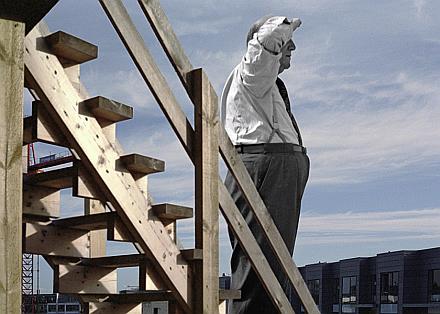
Johan Rosenmunthe
_______________________
Touch Wood
Albert Mobilio
agni
pillar then pedestal & yes
you want to be saved, not tossed
off, left to wrecks:
wheel’s teeth per inch;
wordage over blood pressure;
speed at which cylinders spin;
or nickels enough to fill
his fist, then hers, then how
many times clenched
makes revolution happen,
revolving doors stop. you start
off already unable,
addled even, by proximity
to this or that bull’s eye, another
glossy page, one more
instance of giving to get
& what you get is mortal cold
but spit-shined. so being loved
isn’t smart; it’s lincoln logs,
mortise & tenon,
a kind of compulsion, a cabin
with its curl of smoke.
we lay down housed,
our animal griefs
intact inside such labor.
some poems by Albert Mobilio_______________________
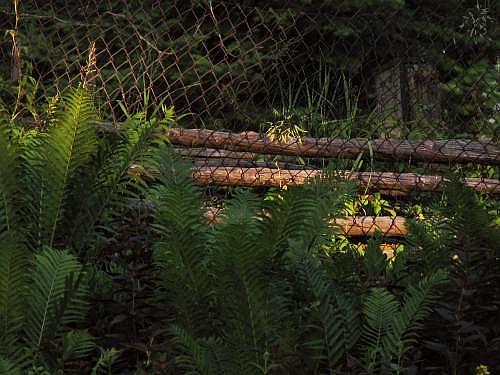
photo - mw

Kurt Schwitters
(20 June 1887 - 8 January 1948)
London, 1944,
photo by his son Ernst
Kurt Schwitters at PennSound
_______________________
Father's Day Poems
compiled by Becca Klaver
The Poetry Foundation
Youth
James Wright
Strange bird,
His song remains secret.
He worked too hard to read books.
He never heard how Sherwood Anderson
Got out of it, and fled to Chicago, furious to free himself
From his hatred of factories.
My father toiled fifty years
At Hazel-Atlas Glass,
Caught among girders that smash the kneecaps
Of dumb honyaks.
Did he shudder with hatred in the cold shadow of grease?
Maybe. But my brother and I do know
He came home as quiet as the evening.
He will be getting dark, soon,
And loom through new snow.
I know his ghost will drift home
To the Ohio River, and sit down, alone,
Whittling a root.
He will say nothing.
The waters flow past, older, younger
Than he is, or I am.
.....................................................
A Fistful of Father's Day Poems
A Man for All Seasons: Poems for Father’s Day
_______________________
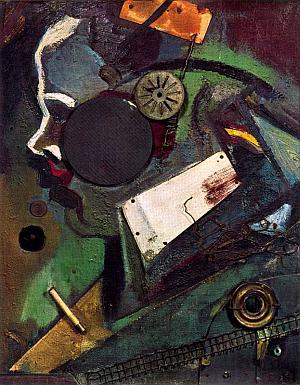
Kurt Schwitters
1919
_______________________
The Very Angry Tea Party
J.M. Bernstein
The seething anger that seems to be an indigenous aspect of the Tea Party movement arises, I think, at the very place where politics and metaphysics meet, where metaphysical sentiment becomes political belief. More than their political ideas, it is the anger of Tea Party members that is already reshaping our political landscape....(more)
.....................................................
The Tea Party Jacobins
Mark Lilla
My hypothesis is that what all the events precipitating the Tea Party movement share is that they demonstrated, emphatically and unconditionally, the depths of the absolute dependence of us all on government action, and in so doing they undermined the deeply held fiction of individual autonomy and self-sufficiency that are intrinsic parts of Americans’ collective self-understanding.
The implicit bargain that many Americans struck with the state institutions supporting modern life is that they would be politically acceptable only to the degree to which they remained invisible, and that for all intents and purposes each citizen could continue to believe that she was sovereign over her life; she would, of course, pay taxes, use the roads and schools, receive Medicare and Social Security, but only so long as these could be perceived not as radical dependencies, but simply as the conditions for leading an autonomous and self-sufficient life. Recent events have left that bargain in tatters.(....)
The Tea Party rhetoric of taking back the country is no accident: since they repudiate the conditions of dependency that have made their and our lives possible, they can only imagine freedom as a new beginning, starting from scratch. About this imaginary, Mark Lilla was right: it corresponds to no political vision, no political reality. The great and inspiring metaphysical fantasy of independence and freedom is simply a fantasy of destruction. ...(more)
_______________________
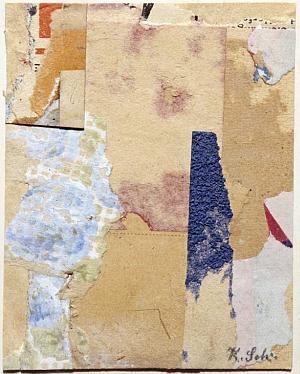
Aphorism
Kurt Schwitters
1923
_______________________
Changing Canada, one backward step at a time
James Travers
Imagine a country where Parliament is padlocked twice in 13 months to frustrate the democratic will of the elected majority. That country is now this country.
Imagine a country that slyly relaxes environmental regulations even as its neighbour reels from a catastrophic oil leak blamed on slack controls. That country is now this country.
Imagine a country that boasts about prudent financial management while blowing through a $13-billion surplus on the way to a $47-billion deficit. That country is now this country.
Imagine a country where a political operative puts fork-tongued words in a top general’s mouth. That country is now this country.
Imagine a country that refuses to fund the same safe abortions to poor women abroad as it provides at home. That country is now this country.
Imagine a country where the national police commissioner skews a federal election and is never forced to explain. That country is now this country.
Imagine a country that writes a covert manual on sabotaging Commons committees. That country is now this country.
Imagine a country dragging its climate change feet as the true north melts. That country is now this country....(more)
_______________________
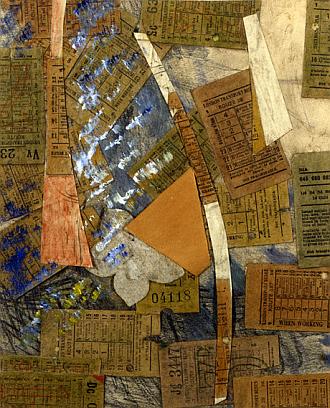
Mainly Blue
Kurt Schwitters
1944-45
_______________________
Kurt Schwitters' Merzbau: The Desiring House
Jaleh Mansoor
Invisible Culture
While Schwitters never exchanged the paint, canvas, or brush for photography or the readymade, or any other form related to modernity, industrialization, and mass reception (forms with which other avant-gardists were struggling), he nonetheless stripped those traditional tools of their purity and integrity. By crossing them with the very materials and processes they were meant to transcend—the organic, the industrial—he inaugurates a practice unbounded by object category or classification, what Deleuze would identify as a kind of “anorganic vitalism.” What is at stake is a particular self-driven economy of work indifferent to its product. This is already evident in Schwitters’s collage work of the early and mid teens, the Merzbilder. To think of the Merzbau in terms of architecture would shift the focus onto questions of architectural specificity and its limits, thereby obscuring the problem at hand: the centrality of a process undetermined by ends, objects or products. A comparison of the economy driving Schwitters’s collage production to that of Picasso’s cubist collage presents the problem more clearly.
“I am a painter and I nail my pictures together.” In a 1924 issue of Merz, entitled G, Schwitters discussed poetry and painting together:
The end pursued by poetry is pursued, logically, by Dadaist painters who, in their pictures, evaluate object against object by sticking or nailing them down side by side. Things may be evaluated in this way rather than they are when signified by words.
...(more)
_______________________
The Merzbook: Kurt Schwitters Poems
Colin Morton
... narrative poem loosely based on the life and art of the renowned modern German collage artist, Kurt Schwitters.
Garbage Picking on Kaiserstrasse
"In Merz painting the box top, the playing card, the newspaper clopping become surfaces, string, brusAstroke, and pencil stroke become line, wire netting becomes overpainting, pasted-on wax paper becomes varnish; cotton wool becomes plasticity."
The butcher throws out little more
than bone chips and odd ends of string
knotted in blackened gristle.
The print shop's bin is bulging, though,
with the primitive authority of the alphabet,
the naked cyan of colour discards,
while the tailor's and ah the dressmaker's shops
trail scraps of gleam and shimmer down the alley;
the milliner's barrel runs over with ribbon.
If you're going on from here, be sure
to bring a strong bag or basket;
next comes the tanner's, the machine shop
and, ah paradis, the dump
where all the cast-off dreams are thrown.
...(more)
Poetry and fiction by Colin Morton
In Transit
Colin Morton
_______________________
Three poems
Hester Knibbe
translated by John Irons
jacket 40
The House at the Lock
(....)
2
Where the path is turned by the lock
the men stand
silent
as in ancient stories, not
in the inert lee of houses
but in wind upon wind and all
that is vast. Their greeting is
a growl, a comma
their rump; arm on arm hunched over
handlebars, they merely peer
with stiff-lipped mouths. As if,
autochthon as the lake, they
have to wonder every evening at
the day: where it has come from
and where it might be going.
...(more)
_______________________

my father
photo by my grandfather
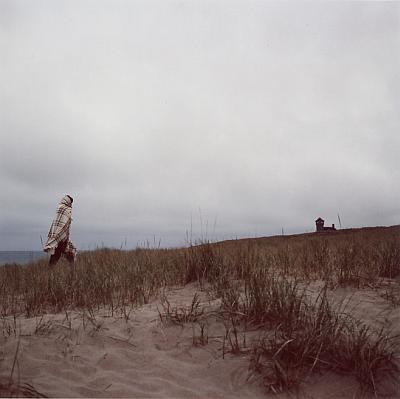 Mikael Kennedy
_______________________
How Characters Became the Masters and the Author Their Apprentice
Translated from the Portuguese: Tim Crosfield and Fernando Rodrigues
José Saramago
Nobel Lecture, December 7, 1998
Blind. The apprentice thought, "we are blind", and he sat down and wrote Blindness to remind those who might read it that we pervert reason when we humiliate life, that human dignity is insulted every day by the powerful of our world, that the universal lie has replaced the plural truths, that man stopped respecting himself when he lost the respect due to his fellow-creatures. Then the apprentice, as if trying to exorcise the monsters generated by the blindness of reason, started writing the simplest of all stories: one person is looking for another, because he has realised that life has nothing more important to demand from a human being. The book is called All the Names. Unwritten, all our names are there. The names of the living and the names of the dead.
I conclude. The voice that read these pages wished to be the echo of the conjoined voices of my characters. I don't have, as it were, more voice than the voices they had. Forgive me if what has seemed little to you, to me is all....(more)

José Saramago
(16 November 1922 – 18 June 2010) José Saramago, the Unexpected Fantasist
Fernanda Eberstadt
José Saramago at the Scriptorium
The Modern Word
Some of his novels at google books
Blindness
Seeing
The Gospel According To Jesus Christ
All the Names
The History Of The Siege Of Lisbon
_______________________
The Longing of the Long Poem
Peter Middleton
jacket
(....)What significance does the adjective ‘long’ carry when we talk about the long poem? Is it literal or metaphorical, or a more or less implicit proper name (a disavowed categorisation that really means ‘modernist’ or ‘world-encompassing’); and whichever of these best describes the work of this measure, is it then a value (never mind the length feel the quality), or a category (a capacious genre perhaps subsuming epics, narratives, sequences, and oulipian behemoths), or a metonym for some extended poetic theory (having semantic parallels with the adjectives in terms such as ‘action painting’ or ‘minimalist music’, adjectives whose everyday usage is only an oblique guide to these aesthetic practices)? Or maybe scale does directly result in aesthetic consequence, so that the long poem is as it were orchestral to the chamber scale of the lyric poem? Only a VLP will keep the warriors occupied during the feasting; or to translate this into contemporary idioms, only a VLP can be apotropaic towards the dangers of subject-based, expressive, or confessional verse. ...(more)
_______________________
Feature: The Low Countries
Edited by Joris Lenstra
jacket 40
Contemporary Poetry in the Netherlands: An introduction
Joris Lenstra
Four poems
Mark Boog
translated by Willen Groenewegen
Happiness
Happiness is surmountable. One places it
in a glass case and goes to work.
Those who ask are allowed to see it,
accompanied by a balanced commentary.
...(more)
_______________________
Gulf of Mexico
by Robert Gibbons
All & nothing left of the Gulf of Mexico, but praise in memory? (Or devastation in imagination?) Say, Veracruz in ’74, when Manuel came up with that portable typewriter, while we refused to go home till Nixon stepped down, or walked up the steps of the plane waving his half-assed Nazi salute. Later, my father would love the veranda of the Hilton at Clearwater watching the water boil. From our deck at the older hotel dolphins celebrated sunset close to shore almost walking fin & arm with local strollers. Toward Anna Maria Island the Skyway Bridge makes one forget any trouble in paradise, until yesterday when with the brown sheen spill of oil threatening wetland marshes, estuaries, & native habitat of outer reef islands of Louisiana & Alabama, the CEO for Exploration & Production at British Petroleum claimed there weren’t, “enough resources in the world to fight this thing offshore.”
Poets' Basement
Counterpunch
June 18 - 20, 2010
_______________________
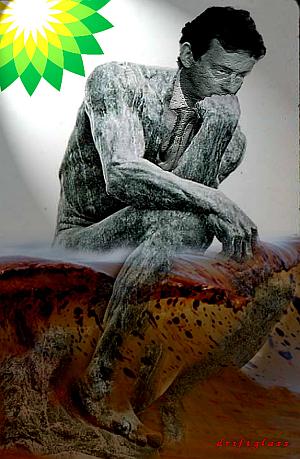
Everybody Please Keep It Down
Your Ruling Class is trying to think.
driftglass _______________________
The Walrus And The Petrol Man
[being a loose adaptation, for our time,
of "The Walrus and the Carpenter" by the Rev. C. L. Dodgson,
to whom all honor be given and to whom no offense is meant]
George Wallace
a fool in the forest
(....)
“If seven maids with seven mops
Swept it for half a year,
Do you suppose” the Walrus said,
“That they could get it clear?”
“I doubt it,” said the Petrol Man,
And shed a bitter tear.
“I’d like to have our lives back, sir,”
The Petrol Man complained.
"These locals are small people, sir,”
The Walrus he explained,
“Perhaps, if we consulted them,
Their wrath might be contained?
“A Town Hall meeting’s just the thing.
That’s sure to gain their trust.
It works for politicians, sir,
It ought to work for us.”
The Petrol Man, with furrowed brow,
Said, “All right, if we must.”
...(more)
_______________________
FEED
the return of the archives
1995 - 2001
FEED went offline in the summer of 2001. After nine years of suspended animation, we decided to put the archives back online. If nothing else, they keep us honest. They might even still teach us something about digital media. We've also created a twitter account @feedforever, which we will update with news and links to new work by the extended FEED community of writers. To mark this occasion, we've assembled reminiscences by former FEED contributors and links to some of our favorite pieces of yore.
via if:book_______________________
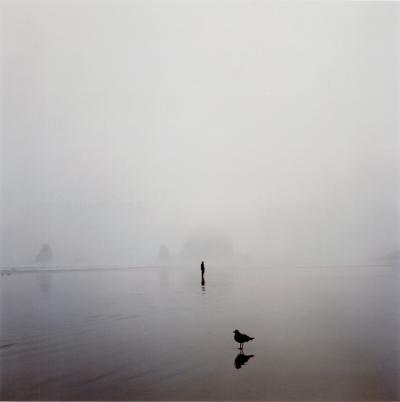
The Odysseus
Mikael Kennedy Saltwater River Guard
text and photographs by Mikael Kennedy
Camera Obscura
_______________________
selections from
The Whole Island
Six Decades of Cuban Poetry, A Bilingual Anthology
Edited by Mark Weiss
provided by Jerome Rothenberg
The Face Of The Nation
Iraida Iturralde
(1954-)
Lost in the flounces of a foreign mother
the tongue becomes twisted.
Pronouncing its name.
Memory is the prop, the mariner
who in his wandering
arrives at our door.
Let the dam hold back
the water from that soil
filled with aphorisms.
Let that insolent icon
rot from within,
its burden of shards
a stink in the night.
Cry out now:
those who wander there
have fallen mute.
Intent on the sea,
they flee.
...(more)
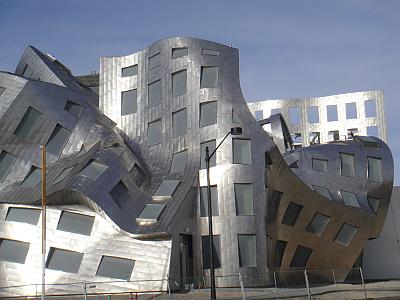
Frank Gehry's Lou Ruvo Center for Brain Health
via Mind Hacks _______________________
The End of Solitude
William Deresiewicz
... we are losing both sides of the Romantic dialectic. What does friendship mean when you have 532 "friends"? How does it enhance my sense of closeness when my Facebook News Feed tells me that Sally Smith (whom I haven't seen since high school, and wasn't all that friendly with even then) "is making coffee and staring off into space"? My students told me they have little time for intimacy. And of course, they have no time at all for solitude.
But at least friendship, if not intimacy, is still something they want. As jarring as the new dispensation may be for people in their 30s and 40s, the real problem is that it has become completely natural for people in their teens and 20s. Young people today seem to have no desire for solitude, have never heard of it, can't imagine why it would be worth having. In fact, their use of technology -- or to be fair, our use of technology -- seems to involve a constant effort to stave off the possibility of solitude, a continuous attempt, as we sit alone at our computers, to maintain the imaginative presence of others. As long ago as 1952, Trilling wrote about "the modern fear of being cut off from the social group even for a moment." Now we have equipped ourselves with the means to prevent that fear from ever being realized. Which does not mean that we have put it to rest. Quite the contrary. Remember my student, who couldn't even write a paper by herself. The more we keep aloneness at bay, the less are we able to deal with it and the more terrifying it gets....(more)
Hermitary: the hermit, hermits, eremitism, solitude, silence, anchorites, recluses, simplicity
via tawny grammar
_______________________
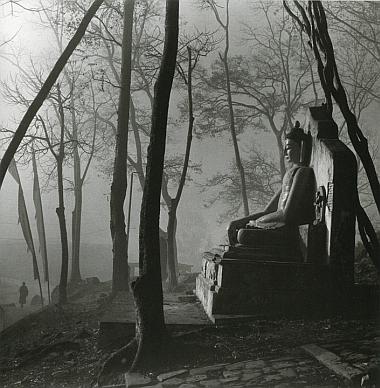 Buddha, Katmandu
1985
Ritual
Rosalind Solomon
1 2
Rosalind Solomon interviewed by Steven Watson
Rosalind Solomon’s Singular Journey
Susana Raab Four Questions for Rosalind Solomon
2point8
_______________________
Thai Digital Monastery Project
Justin McDaniel
_______________________
OLIVER: We’ve talked a lot thus far about temptation—the temptation of fusion, immediacy, collective soul, enfleshment. The word signals the necessity of distinguishing the essential and the extraneous, the real and the fake, the short term and the long term, and implies an optimal path, an expectation or hope; and, of course, in religious traditions, the word signals the idea of destiny if not fate, the presence of something like the prophetic mode. What is the role of the philosopher or the cultural critic?
RANCIÈRE: There are many ways of understanding the role of the philosopher—in general or in the current situation. Most people seem to identify it today with some kind of prophecy about the disaster threatening culture, civilization, the symbolic order, and so on. All the elements of social criticism and the critique of culture have been recycled in order to sustain those prophecies about the impending disaster produced by individualism, democracy, consumption, the spectacle, and so on. From my point of view, the true philosophical or critical task is to do away with that so-called critical trend, which has become nothing more than the discourse of a police order. It is to do away with the prophetic tone and with the plot of decadence that is only the reversal of the former trust in the sense of history and to focus on the existing forms of intellectual, artistic, and political invention. Hope is not the precondition of action. On the contrary, it is the product of the openings and expectations brought about by the dynamic of those inventions.
Jacques Rancière, Aesthetics against Incarnation: An Interview by Anne Marie Oliver
paywall barricaded
courtesy of Brad Johnson
An und für sich
_______________________
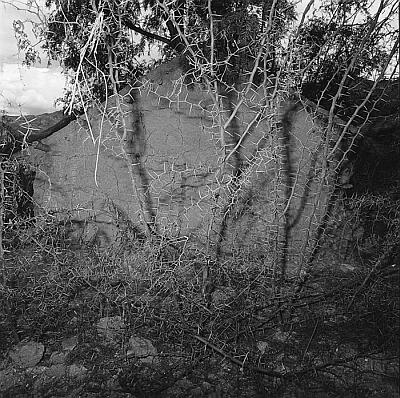
Rosalind Solomon
_______________________
... how do we deal with this omnium gatherum when we have got it?
Diary
Keith Thomas
It is possible to take too many notes; the task of sorting, filing and assimilating them can take for ever, so that nothing gets written. The awful warning is Lord Acton, whose enormous learning never resulted in the great work the world expected of him. An unforgettable description of Acton’s Shropshire study after his death in 1902 was given by Sir Charles Oman. There were shelves and shelves of books, many of them with pencilled notes in the margin. ‘There were pigeonholed desks and cabinets with literally thousands of compartments into each of which were sorted little white slips with references to some particular topic, so drawn up (so far as I could see) that no one but the compiler could easily make out the drift.’ And there were piles of unopened parcels of books, which kept arriving, even after his death. ‘For years apparently he had been endeavouring to keep up with everything that had been written, and to work their results into his vast thesis.’ ‘I never saw a sight,’ Oman writes, ‘that more impressed on me the vanity of human life and learning.’
Living, as I do for much of the year, in Shropshire and following a routine uncomfortably close to Acton’s, I find this account distinctly painful. The unread books pile up and I know that I shall not live long enough to use all the references I have accumulated. Those who come after me will almost certainly be unable to read what I have written or interpret my abbreviations, leave alone discover what purpose the excerpts were meant to serve in the first place. As Francis Bacon warned long ago, ‘One man’s notes will little profit another.’(....)
... the sad truth is that much of what it has taken me a lifetime to build up by painful accumulation can now be achieved by a moderately diligent student in the course of a morning. (....)
Yet as I pick my way through my accumulation of handwritten material, I don’t feel depressed. The thousands of used envelopes themselves give me a good deal of nostalgic pleasure; they remind me of old friends, of institutions with which I have been associated and of the secondhand booksellers who have sent me catalogues over the years. Admittedly, they also remind me of many false starts: topics I began on, tired of or discovered were being written up by somebody else. But that is a challenge to reorder my materials as the world moves on and my interests change. In his essay ‘On Intellectual Craftsmanship’, appended to his The Sociological Imagination (1959), C. Wright Mills reassuringly remarks that ‘the way in which these categories change, some being dropped and others being added, is an index of your intellectual progress … As you rearrange a filing system, you often find that you are, as it were, loosening your imagination.’...(more)
via languagehat
_______________________

inside the Lou Ruvo Center for Brain Health
_______________________
Depression’s Hoarded Prayers
Phil Rockstroh
Ebullient Skepticism
Although, I have made my home in being lost, I recognize you: You are: The homunculus of my aspirations, lost as well, squatting amid the ruins of my towering rage.
Granted, like you, my prevailing sense of self has been besieged by contretemps and coincidence; even more like you, I am enrapture by the distraction.
Our kind … are dazzled by broken bits of the approving sun. Amassing solar shards the way bower birds shore glinting baubles, I’ve witnessed you bartering with penurious angels for a glimpse of the totality that causedtheir fall.
(What we won’t do for the buzz provided by primal grace. Although we carry Eden within us … knowing it is as provisional as paradise.)...(more)
Phil Rockstroh at Unlikely Stories
Moloch in the Mirror
Phil Rockstroh
Phil Rockstroh in Democratic Underground

photo - mw
_______________________
Soul, you are a street
Aleksey Porvin
Translated from RussianRussian by Peter Golub
Words Without Borders
Soul, you are a street, leading into rain
from the outskirts full of dry leaves:
it is more humid closer to the central plaza—
I am a paving block and slipperiness.
Between the tight boulders the water
weakly beats, like the rataplan
of an injured regiment—the grass
and leaves of past warm years hide there.
The quieted footsteps will not disturb us:
the nervous race has all but fully spilled
and hidden in the suburbs—now we are here alone.
I feel a latent growth.
It lengthens among the rocks and waits
for the arrival of the first ray;
then the stem having grabbed the sun
grows into us, into the peopleless hum.
_______________________

Natalia Goncharova
b. June 16, 1881
_______________________
Happy Bloomsday
INELUCTABLE MODALITY OF THE VISIBLE: AT LEAST THAT IF NO MORE, thought through my eyes. Signatures of all things I am here to read, seaspawn and seawrack, the nearing tide, that rusty boot. Snotgreen, bluesilver, rust: coloured signs. Limits of the diaphane. But he adds: in bodies. Then he was aware of them bodies before of them coloured. How? By knocking his sconce against them, sure. Go easy. Bald he was and a millionaire, maestro di color che sanno. Limit of the diaphane in. Why in? Diaphane, adiaphane. If you can put your five fingers through it, it is a gate, if not a door. Shut your eyes and see.
James Joyce, Proteus, Ulysses
The Literature Network
_______________________
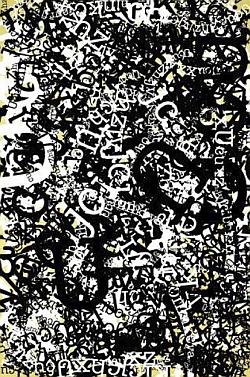
Language Is Hell
Nico Vassilakis
script
Like brain trauma victims learning to read again, these new textual forms may indeed seem impenetrable, exotic, and even asemic, but only until we unshackle ourselves from the past and develop normalized means of consuming, analyzing, and marketing these forms. We've done it before, in moments of great cultural advance, and there's no reason we can do it again.
- Quimby Melton
via Cecilia Ann
_______________________
The Mythology of László Krasznahorkai
David Auerbach
Quarterly Conversation
All that is transitory is but a parable.
Goethe, Faust II
This line, meant by Goethe to indicate that our worldly lives are but symbols for a greater, permanent afterlife, carries with it ambiguities that Mahler never considered when he used it rather clumsily at the climax of his Eighth Symphony. If we are all Christians, how easy to dispose of the travails of this life by casting them as imperfections of a greater, lesser-known world. But if we do not know that world, how do we construct that parable, and how do we sustain it in the face of reality’s constant resistance to conform to it? This is the question that the Hungarian author László Krasznahorkai pursues in his fiction.
In the post-war years, many European authors, especially those from Communist states, engaged in surrealism, parable, and allegory as a way of containing the mid-century chaos that spilled over from the war, where the psychology and rationality of modernism no longer seemed capable of fighting the irrationality of Nazism and Communism. While there have been some stunning works by Ludvik Vaculik (The Guinea Pigs), Bohumil Hrabal (I Served the King of England, Too Loud a Solitude), Imre Kertész (Detective Story, Liquidation), and others, this general approach has more frequently produced limp sentimentality and disposable weirdness (Milan Kundera and Victor Pelevin, spring to mind). Within their own works, Günter Grass and Ismail Kadare have met with both success and disaster plowing this field.
It is Krasznahorkai who has, to my knowledge, engaged in the deepest investigation of how these metaphorical understandings are formed, how they succeed, and, most importantly, how they fail. Like Kertész at his best, he questions the process of making meaning.
...(more)
_______________________

Stage design for "The Golden Cockerel"
(1914)
Natalia Goncharova
_______________________
The Christian Fascists Are Growing Stronger
Chris Hedges
Tens of millions of Americans, lumped into a diffuse and fractious movement known as the Christian right, have begun to dismantle the intellectual and scientific rigor of the Enlightenment. They are creating a theocratic state based on “biblical law,” and shutting out all those they define as the enemy. This movement, veering closer and closer to traditional fascism, seeks to force a recalcitrant world to submit before an imperial America. It champions the eradication of social deviants, beginning with homosexuals, and moving on to immigrants, secular humanists, feminists, Jews, Muslims and those they dismiss as “nominal Christians”—meaning Christians who do not embrace their perverted and heretical interpretation of the Bible. Those who defy the mass movement are condemned as posing a threat to the health and hygiene of the country and the family. All will be purged.
The followers of deviant faiths, from Judaism to Islam, must be converted or repressed. The deviant media, the deviant public schools, the deviant entertainment industry, the deviant secular humanist government and judiciary and the deviant churches will be reformed or closed. There will be a relentless promotion of Christian “values,” already under way on Christian radio and television and in Christian schools, as information and facts are replaced with overt forms of indoctrination. The march toward this terrifying dystopia has begun. It is taking place on the streets of Arizona, on cable news channels, at tea party rallies, in the Texas public schools, among militia members and within a Republican Party that is being hijacked by this lunatic fringe. ...(more)
_______________________

photo - mw
_______________________
Five Poems
Grzegorz Wróblewski
The PIP (Project for Innovative Poetry)
a project of Green Integer and its publisher, Douglas Messerli
True Friends
Translated from the Polish by the author and Malcolm Sinclair
Some times it’s women with a false diamond
in the ear, other times gossiping parrots
or failed politicians.
...(more)
|
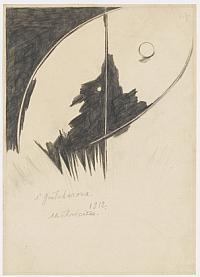
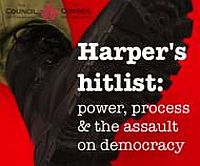

 Janus Head
Janus Head

 The Age of Briggs & Stratton
The Age of Briggs & Stratton























































